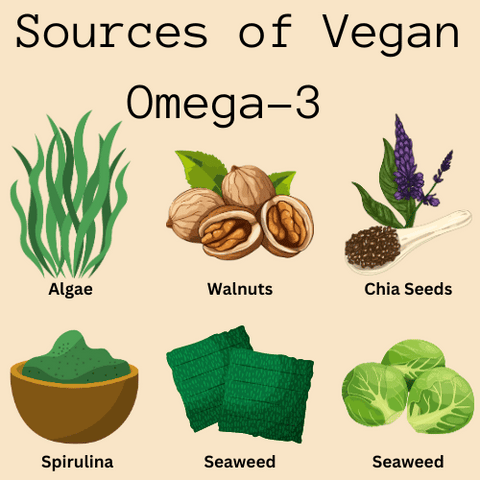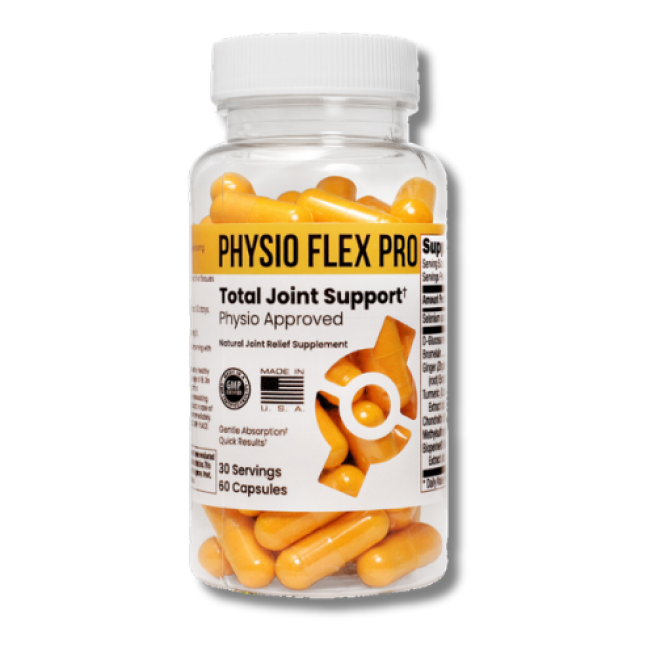Struggling to choose between algae oil and fish oil for your omega 3 supplement? You're not alone.
This article breaks down the key differences, focusing on health benefits, environmental impact, and more. With insights gathered from industry experts, we'll guide you through the pros and cons of each.
Perfect for health enthusiasts and eco-conscious readers, let's discover together which oil best suits your lifestyle and values.
What is Algae Oil?

Composition and Production
Derived from microscopic photosynthetic organisms such as various types of algae usually found in aquatic environments, algae oil belongs to a group of complex organisms ranging from microalgae to macroalgae.
Certain types of microalgae, such as chlorella and spirulina, are essential sources of vitamins. Macroalgae are commonly referred to as seaweeds and can be used for oil extraction.
In terms of extraction methods, a 2021 study provided that solvent extraction is one of the primary methods to produce algae oil. An organic non-polar solvent like n-hexane can extract the lipid content from the algae, wherein the solvent evaporates after extraction.
Supercritical fluid extraction removes lipids from algae using carbon dioxide and doesn't require potentially harmful solvents. Mechanical pressing is often used for oil-rich microalgae, wherein it mentally breaks down algae cell walls to extract the oil.
Algae oil is commonly used in producing biofuels and provides nourishing properties in cosmetics and skincare. Algae oil possesses rich omega-3 fatty acids, which are algae oil's primary component. A 2013 study provided that marine algae are commonly associated with fish and other seafood products since it's derived from docosahexaenoic acid (DHA) and eicosapentaenoic acid (EPA).
These omega-3 fatty acids are crucial for cognitive function and cardiovascular health. Other components of algae oil include omega-6 fatty acids to balance omega-3 for overall health, carotenoids for algae pigmentation, vitamins, and minerals.
Health Benefits
Algae oil is associated with several health benefits:
- Heart health - Algae oil can lower blood pressure, decrease the risk of heart disease, and reduce triglyceride levels by alleviating inflammation and improving cholesterol levels. A review showed microalgae oil’s EPA/DHA protective mechanisms for coronary heart disease.
- Joint health - A 2018 study provided that DHA, as a source of algae oil, can ameliorate disease activity in patients with rheumatoid arthritis. This can reduce joint pain and improve flexibility.
- Brain health - Algae, in a 2021 study, showed that it can prevent neurodegenerative or psychocognitive pathologies aside from supporting normal brain functions.
- Eye health - DHA is a major retina component that can maintain eye health. A 2020 study showed that algae oil treatment provides both antiapoptotic and anti-inflammatory effects in anterior ischemic optic neuropathy as it can protect retinal ganglion cells.
- Skin health - A 2017 study provided that microalgae produce bioactive and antioxidant compounds to prevent sun damage for skin protection and to generate physical and psychological well-being..
Environmental Impact
A study published in the Renewable and Sustainable Energy Reviews contained information on algae for biofuel production in Iran. In this study, algae can accumulate high levels of lipids that can be transferred into biodiesel.
Algae biofuel is highly biodegradable, contains no sulfur, and is non-toxic. Moreover, algae stand out from the rest of other oil sources since it has a low impact on prices and food production.
First-generation feedstocks like palm oil, rapeseeds, and soybeans, and second-generation feedstocks like waste cooking oils, salmon oil, and jojoba oil showed insufficiency, unsustainability, and high cost of biodiesel production.
This occurrence led scientists to focus on third-generation biodiesel feedstocks derived from microalgae.
What is Fish Oil?

Composition and Production
A study from the European Journal of Lipid Science and Technology provided that fish oil for formulating fish seeds as a commodity ingredient is associated with dependence on aquaculture, particularly the fish farming industry. This is because fish oil has omega-3 long-chain polyunsaturated fatty acids, including docosahexaenoic acid (DHA) and eicosapentaenoic acid (EPA).
Several omega-3 fatty fish species like salmon, mackerel, sardines, tuna, and krill are rich sources of fish oil. Rendering is the standard extraction process for fish oil, separating fish tissues from the oil. Enzymatic hydrolysis is also an extraction process that is more environmentally friendly as it breaks down the cell walls of fish tissues. Solvent extraction dissolves the oil from fish tissues by using solvents like hexane.
Fish oil is commonly used for treating various health conditions in the form of pharmaceutical products, along with the production of fortified food. Most significantly, fish oil, as a source of omega-3, is a primary ingredient for dietary supplements.
Docosahexaenoic acid (DHA) and eicosapentaenoic acid (EPA) are the primary components of fish oil, which are crucial for anti-inflammatory properties and can be beneficial for cardiovascular health and cognitive function. Other components of fish oil include vitamin D for bone health and antioxidants for preventing oil oxidation.
Health Benefits
Fish oil is associated with several health benefits:
- Joint health - A study from Thammasat University showed that knee performance improved in fish oil supplementation of 1,000-2,000 mg daily and is considered safe in mild to moderate stages of patients with knee osteoarthritis.
- Cardiovascular health - Fish oil improves heart failure, provides antiplatelet activity, and improves vascular function in diabetes based on a 2011 study.
- Metabolic health - A 2021 study showed that fish oil can increase intermediate-density lipoprotein insulin secretion and decrease oxidative stress.
- Eye health - Results from a 2013 study showed that fish oil supplementation showed 8-12 weeks of improvement in treating dry eyes.
- Respiratory health - Fish oil can have prophylactic potential with maternal supplementation for long-term asthma prevention in offspring, based on a 2017 study.
Environmental Impact
There has been an assessment of the environmental sustainability of fish oil and fishmeal factories in Peru in a 2022 study. Necessary recommendations include the modernization of the oldest processing plants and replacing heavy fuel oil with natural gas.
The operation of fishmeal and fish oil factories relied on hydropower instead of fossil fuels. This imposed environmental impacts from raw material acquisition, along with the use of cleaning agents, maintenance, and waste.
Raw material acquisition from producing canned mackerel and herring usually causes 69% of global warming impacts across the life cycle stage that's assessed.
In comparison with plant-based oil sources, a 2015 study showed that there's no negative impact in using alternative lipid sources (flaxseed oil and soybean oil) in replacement of menhaden fish oil for a non-marine protein-based shrimp production diet in terms of survival, weekly growth, and final weight.

Algae Oil vs. Fish Oil
Nutritional Comparison
Both algae and fish oils are rich sources of omega-3 fatty acids, including docosahexaenoic acid (DHA) and eicosapentaenoic acid (EPA). In the debate of EPA vs DHA, it's important to note that while both oils provide these essential nutrients, they differ in their nutritional profiles.
Algal oil, derived directly from algae, is a primary source of omega-3 in the marine food chain and includes nutrients like Vitamin B, proteins, and antioxidants. On the other hand, fish oil, which accumulates omega-3 through the consumption of algae by fatty fish, contains Vitamin D and astaxanthin.
For those following a vegan diet, algae oil is the recommended source of omega-3 as it does not involve any animal products, unlike fish oil, which isn't suitable for vegans. Additionally, some individuals may need to avoid fish oil due to fish-related allergies.
Another consideration is purity; algae oil is often contaminant-free, with quality depending on the algae's cultivation methods. In contrast, fish oil may contain varying levels of toxins or heavy metals due to environmental contamination of fish habitats.

Health Benefits Analysis
Algae oil and fish oil provide promising benefits as primary sources of omega-3 fatty acids. A 2016 study revealed that microalga and fish oil significantly reduced serum lipid levels and insulinemia to prevent high-fat diet-induced steatosis.
A study from the Swedish University of Agricultural Sciences showed that algae oil produces a similar effect as fish oil in terms of having docosahexaenoic acid (DHA) and eicosapentaenoic acid (EPA). Therefore, both can be direct sources to prevent chronic illnesses and promote optimal health.
Hao Chen is an associate professor at the Department of Gastroenterology who said that fish oil as a source of omega-3 fatty acids can be more beneficial for people with chronic conditions because they experience inflammation-related complications.
On the other hand, algae oil is useful for treating oxidation or wear and tear on the body. Pediatric and family medicine practitioner, Dr. William Sears, confirmed that algae are rich in antioxidants.
Environmental and Ethical Considerations
Quick Notes:
Environmental Impact
- Fish Oil Production: 160,000 tons annually, contributing to overfishing.
- Microalgae: Reduces need for fish oil in fish feed (2021 study).
Health Aspects in Diets
- Vegans/Vegetarians: Lower levels of DHA and EPA.
- Necessity for Supplementation: Crucial for specific groups (children, pregnant women).
Environmental Footprint
-
Algae Oil:
- Global Warming: 5%
- Freshwater Eutrophication: 6%
- Land Use: 10%
- Terrestrial Acidification: 4%
-
Fish Oil:
- Global Warming: 22%
- Freshwater Eutrophication: 5%
- Land Use: 22%
- Terrestrial Acidification: 12%
Ethical Considerations
- Vegetarian Consumer Preference: Algae oil for egg production.
Results from a 2021 study showed that microalgae can reduce fish overexploitation by replacing fish oil in fish feed. There's a global demand for omega-3 fatty acids, with oil extracted from fish being the predominant source.
Overfishing of the species may be due to the estimated fish oil production, which is 160,000 tons. Moreover, dewatering and cultivation are major unit operations that need improvements to minimize the overall environmental impact and energy demand.
Another 2021 study showed that vegans and vegetarians reported lower serum levels of DHA and EPA, specifically in children and pregnant women grown under a vegetarian diet.
This can result in crucial health consequences, requiring omega-3 fatty acid supplementation. Dairy and eggs can be biofortified for lacto-ovo-vegetarians by incorporating fish oil or algae oil into the feed of cows or hens.
Considering the vegetarian consumer's ethics, algae oil is preferred instead of fish oil for producing eggs.
A Sustainable Production and Consumption study showed that algae oil processing only caused 5% of global warming, 6% of freshwater eutrophication, 10% of land use, and 4% of terrestrial acidification.
While fish oil caused 22% of land use impact and global warming, 5% of freshwater eutrophication, and 12% of terrestrial acidification.
Sustainability for Different Diets and Lifestyles
In terms of algae oil for diet, a 2022 study showed an equivalent amount of DHA from snack bars fortified with microalgal DHA compared to capsule form.
This was also applied to an algal oil rich in DHA in cooked salmon that appeared to be bioequivalent in providing DHA in red blood cells and plasma.
To enrich muscle lipids with omega-3 fatty acids for human consumption, using microalgae-extracted oil from fish diets is promising as it's more feasible for microalgal biomass inclusion.
Despite considering algal oil as generally safe, it's still crucial to understand algae nutrient distribution, digestion, and absorption to assess its bioefficiency and bioavailability.
Similar to standard therapy with simvastatin, lifestyle changes combined with ingestion of fish oil and red yeast rice reduced low-density lipoprotein-cholesterol in a study from Mayo Clinic Proceedings.
However, there's still pending confirmation for this alternative approach in larger trials for patients unable or unwilling to take statins.
Cost and Accessibility
A 2020 study provided that a feasible strategy to achieve large-scale production of cost-competitive fish-free diets is using the combination of microalgal biomass suggested by similar estimated fish-free feed and reference diet costs.
Moreover, researchers recognized that Schizochytrium sp. (heterotrophic microalgae) needs to become cost-competitive with fish oil sources for aquaculture feeds for the succession of high-performing fish-free feed for tilapia in the market.
FAQs
1. Can algae oil completely replace fish oil in my diet?
Yes, recent study confirmed that sufficient algae oil supplements are a viable source of DHA for non-fish eaters. Another study provided that algae oil capsules equivalently represent nutritional sources of DHA and appear to be a suitable dietary fish alternative for DHA delivery. In plasma phospholipids, DHA levels increased by 80% in 32 healthy men and women that are 20-65 years old.
2. Is algae oil or fish oil better for heart health?
Based on a 2011 USDA report, DHA in dietary supplements can be obtained from DHA algae or fish oil. As permitted by the Food and Drug Administration, DHA-containing supplements can make the following health claim: reducing the risk of coronary heart disease with EPA and DHA omega-3 fatty acids consumption.
3. Are there any side effects associated with algae or fish oil?
A 2011 USDA report stated that fish oil with high levels of DHA can increase low-density lipoprotein cholesterol levels and bleeding time by over 3g per person per day. As for DHA-algae oil, some adverse effects like diarrhea and apnea in infants, sepsis, necrotizing colitis, and unexpected deaths for some individuals.
4. Can pregnant women consume algae oil or fish oil?
Specific populations with increased requirements, like nursing and pregnant women, can enjoy the health benefits of omega-3 fatty acids from microalgae oil while considering their ethical standards. These oils provide an efficient alternative to traditional fish oils, as stated in a 2022 study.
5. How do the costs of algae and fish oil compare?
A study from the Journal of Nutrition and Food Sciences showed that seaweed derived from high EPA concentrations in red and brown macroalgae is one of the most expensive EPA-DHA sources.
The minimum cost is $2.25, while the maximum is $28.72. While fish oil supplements are the least expensive, with $0.03 being the minimum and $0.20 being the maximum.
Algae oil-fortified food products as a DHA source are relatively expensive since they're specialty products for niche markets.
Despite fish oil supplements having the lowest cost, even though they're marketed and consumed solely as a source of omega-3s, concerns about health problems related to contaminants should be examined.
Conclusion
To sum it up, algae oil and fish oil are rich sources of omega-3 fatty acids, particularly docosahexaenoic acid (DHA) and eicosapentaenoic acid (EPA).
Algae oil is found in aquatic environments that can benefit biofuel production, skin health, and eye health. While fish oil is a direct omega-3 source that can contribute to cardiovascular health and cognitive function. These oils can contribute to environmental impact regarding land use, freshwater eutrophication, and global warming, where fish oil shows a larger contribution. Both sources are generally safe.
However, it's crucial to assess individual needs and preferences. Algae oil is an excellent alternative if you're unable to eat fish or if you're a vegetarian. Be mindful of taking fish oil supplements if you're pregnant or have fish allergies by considering algae oil supplements.
If you can't convert to having a plant-based diet, it's always best to select fish oil as a direct omega-3 source. Before taking these oils, it's crucial to consult a healthcare professional to provide you with a personalized guide and nutritional profile suitable for your health.
Related Posts







